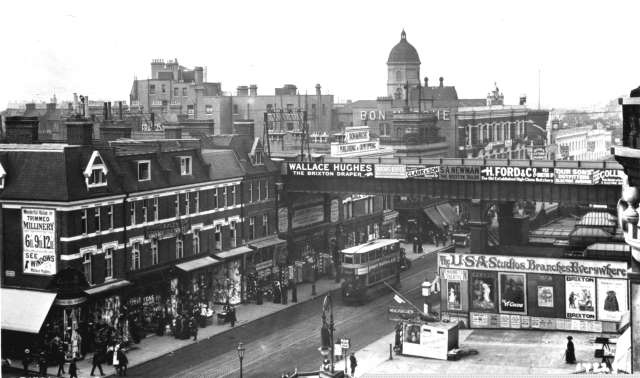PC to Miss Crawshaw franked 18 De 14 – censor Tilly / Lilly
dated 17-12-14
Dear Till
Just a few lines to your welcome letter which I received alright. Yes that will be best as regards the underclothes and don’t forget the socks then Till I will write you a long letter when I receive your parcel, so hope you won’t mind PC for now. No I never received the Choc. Don’t talk about rain we are having plenty. Glad to hear that Mattie got my letter ask him what he thought of it. Well I am getting on alright and as well as can be expected. Well by the time you get this Xmas will be here so will wish you a Merry time and hope to see you soon. Now I think this is all for now as time is scarce and I hope you are all in the best of health and still Totting love to all.
BID
Another letter from Frank which is just a thank you postcard really. He still hasn’t had any chocolate from my Great Grandfather.
We now have the name of another censor, which is great. Geoff has written Tilly/Lilly and this is most probably Lieutenant Charles Otto Lilly. He went out to France as a subaltern with A Company. It’s very probably (one in four?) that he was Frank’s platoon commander. If this is true, then he’s probably the main contact Frank had with the officers of the Dorsets. Most communication from higher up would have come down the line of command through his NCOs.
Lilly was a similar age to Frank, just three years older. He was born in Paddington in 1890 to a wealthy family, just a few miles north from Brixton but a million miles away from Frank’s world. Lilly attended Public School (St Paul’s School in West London – here’s a 1908 cricket scorecard with him on) and then he joined the Dorsets in 1911 from a Territorial University unit but the Gazette doesn’t say which one. It was Jesus College, Cambridge as I’ve just found him on a War List of the Universities. If Frank and Charles ever did University Challenge it would be like this.
Lilly was mentioned in Dispatches in October 1914, and earned the Distinguished Service Order (DSO), presumably for the fighting around La Bassée (and possibly the 12th October 1914 when A Company held the bridge at Pont Fixe) where so many of Frank’s comrades ended their war. He sounds like a remarkable solider and it’s a shame we haven’t met him sooner. He’s actually the first officer I researched a few years ago and so I’ve blown the dust off my previous research today.
Lilly’s story will probably be returned to in the future so I won’t go into further details of his Dorset career here. He left the Dorsets in 1917 but he didn’t go far. He just took to the air. Lilly joined the 6th Brigade Royal Flying Corps, then part of the army, what eventually became the third arm of the forces, the Royal Air Force in 1918. He was assigned to a newly formed 120 squadron in 1918 so we can presume he flew bombers. He left the RAF in 1919 and returned to the Dorsets, but was put on the RAF’s reservist list as a pilot in 1940 aged 50. Lilly died in 1976 in Paddington, London.
Lilly wrote a memoir of his experiences and revisited Flanders in 1927. I would love to read it as it could be the closest connection to Frank there is apart from these letters. It’s quoted in Salient Points Three: Ypres & Picardy 1914-18 by Tony Spagnoly and Ted Smith but it is listed in the bibliography as unpublished. I wonder where the authors accessed a copy?
I left this next bit off the post yesterday and those who get emails also got a garbled load of nonsense (more than usual) so apologies for the glitch. I blame the rum punch (I wish). The Dorsets marched at 3.50pm as the light faded and relieved the East Surrey Regiment east of Wulverghem. The relief was completed at a very precise 9.55pm. No one was hurt. I’ve posted the map in tomorrow’s post.
